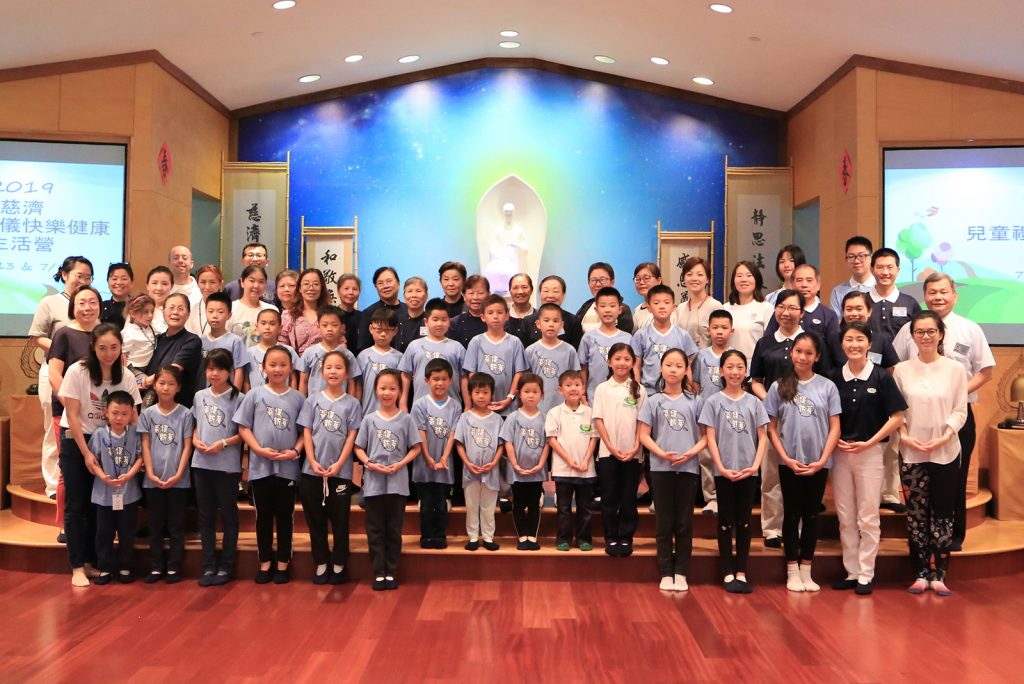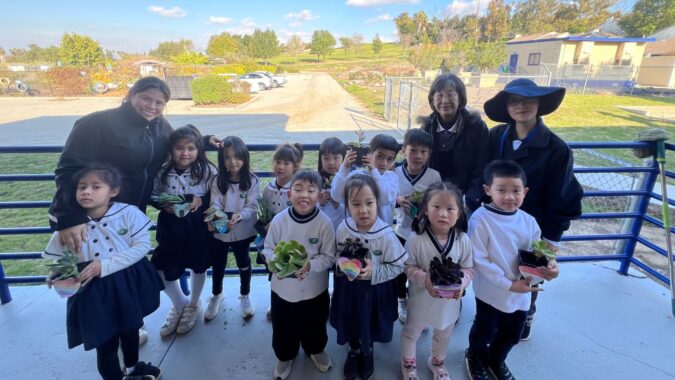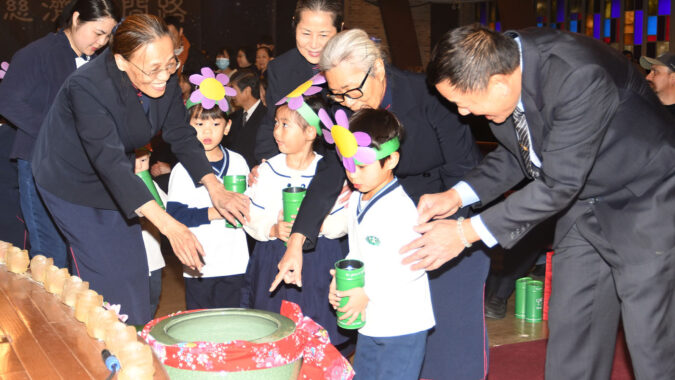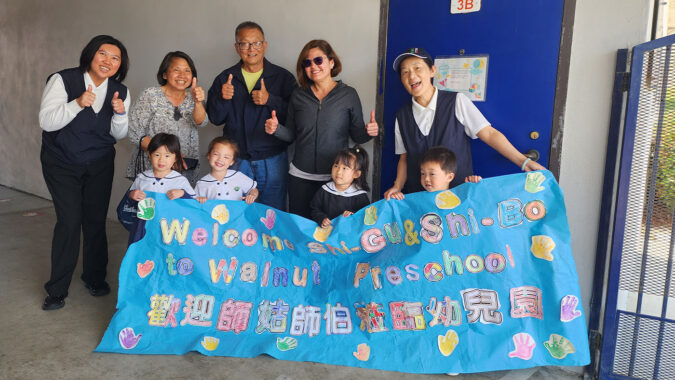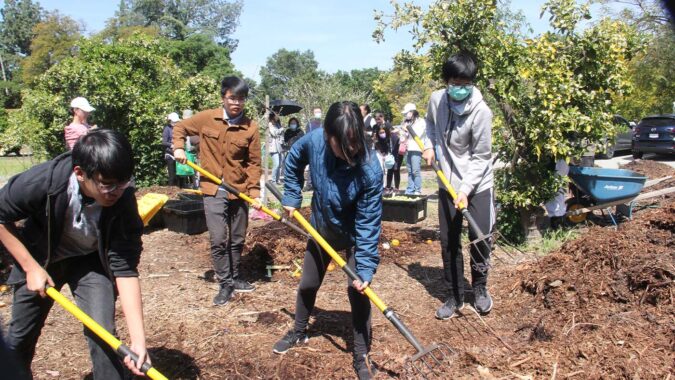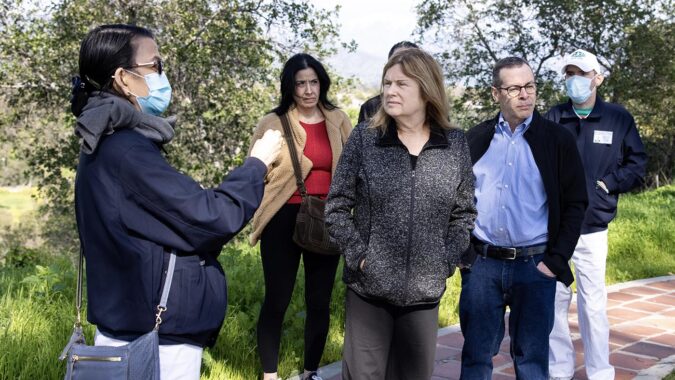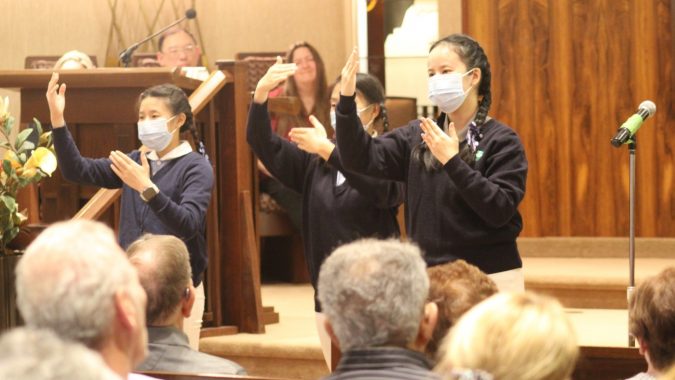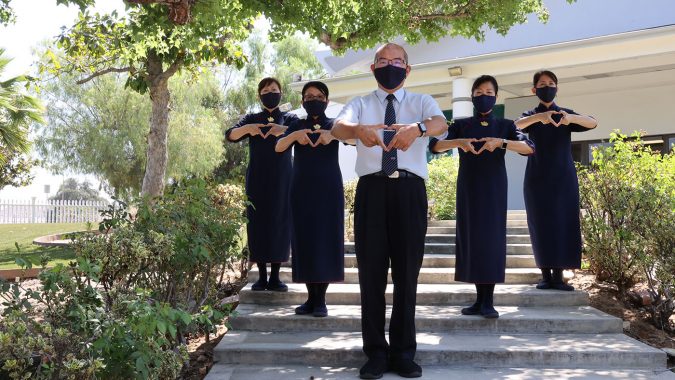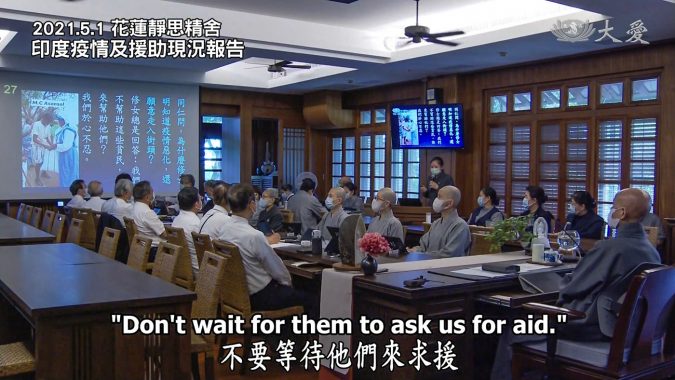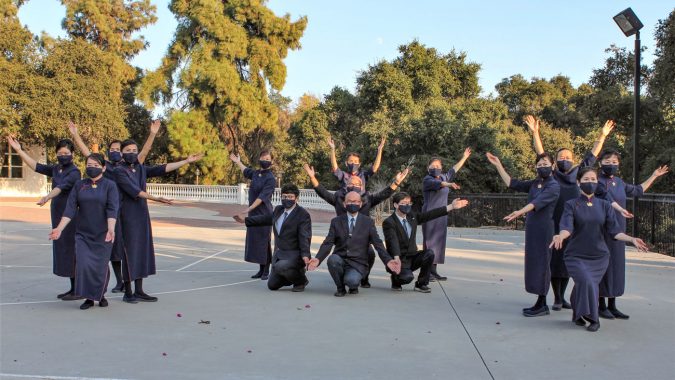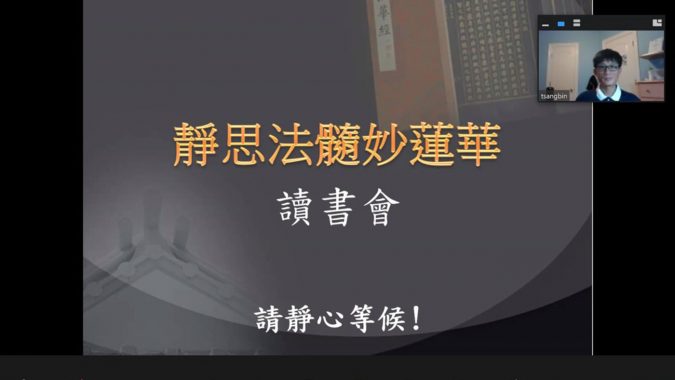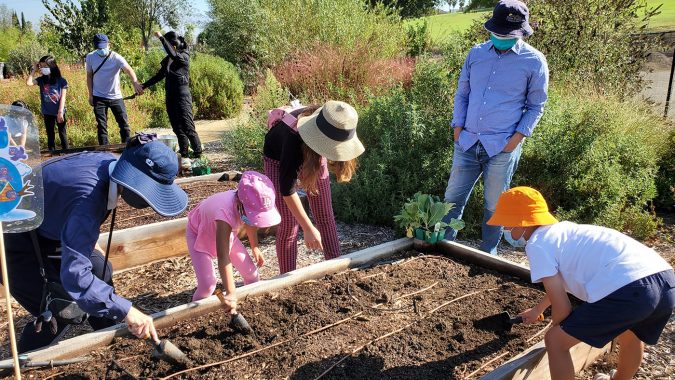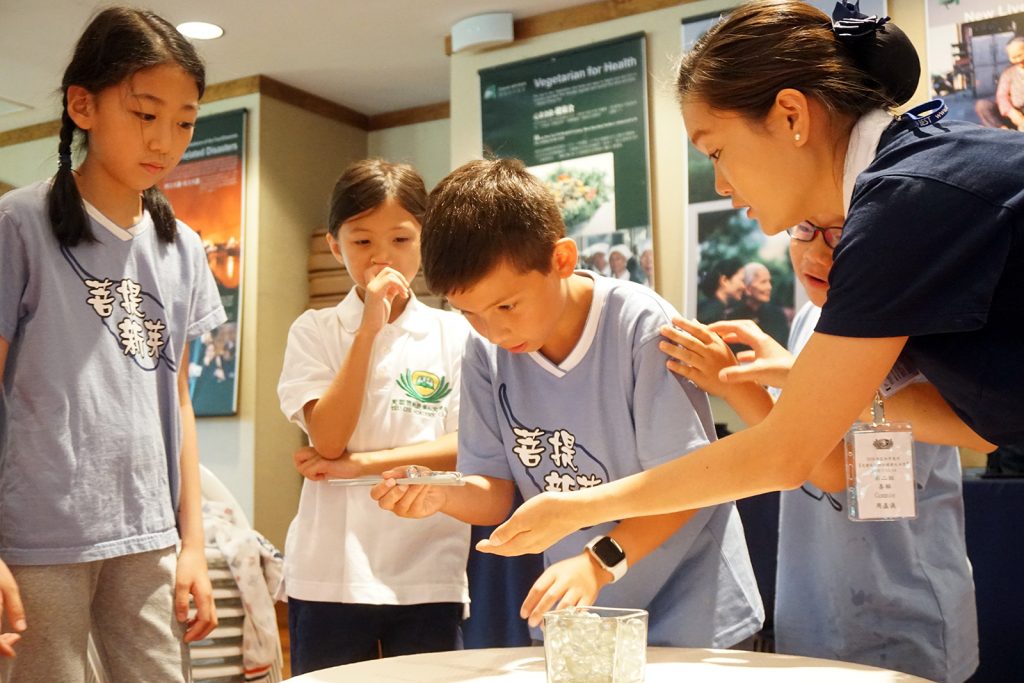
In July of 2019, children from Nanjing, Shanghai, Shenzhen, and Guangzhou, flew to the U.S. for two rounds of summer camp hosted by Tzu Chi USA’s Chicago chapter. Before the summer camp began, the children spent two days and three nights at Tzu Chi’s Jing Si Abode for etiquette sessions. The summer camp hosted 34 students, 12 parents, 6 teachers, and 36 Tzu Chi volunteers.
Humanistic Etiquette Curriculum
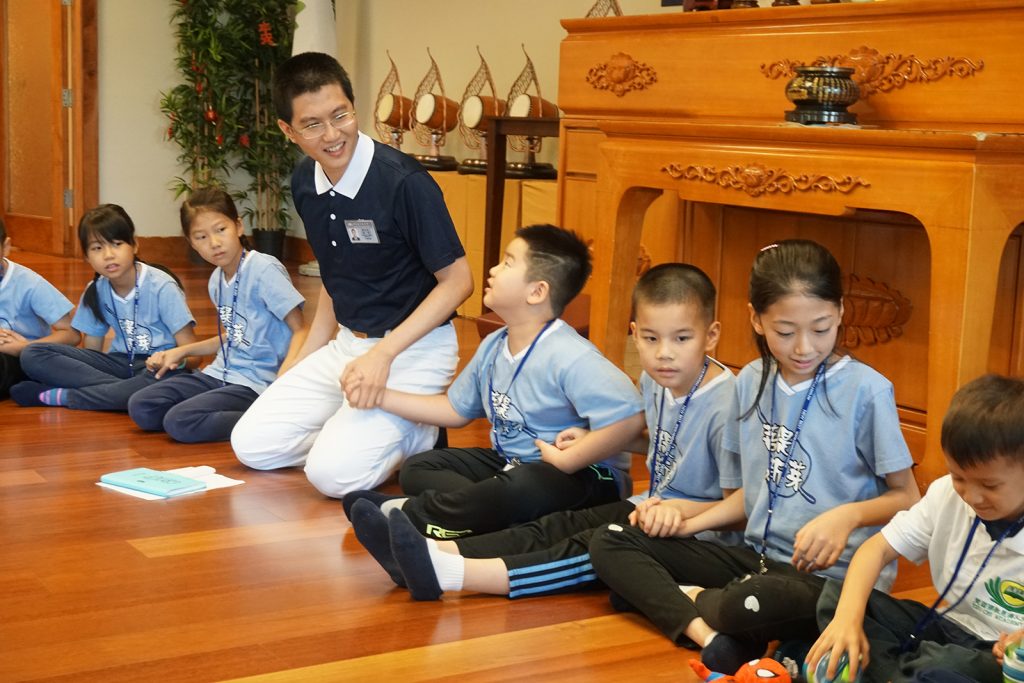
The theme of the etiquette lecture was “Gratitude, Respect, and Love: giving without asking for anything in return.” The aim of the theme was to teach children the importance of these qualities in their daily lives.
The curriculum offered at the camp included ice-breaking, folding blankets and clothes, table manners, DIY vegetable dishes, environmental awareness, team games, and much more. These are each designed to improve empathy, self-exploration, and teamwork.
A Lead Teacher’s Thoughts
According to Yan Xu, the lead teacher of the summer camp, Tzu Chi’s humanistic education is unique because it plants the seeds of compassion within their children’s hearts. Before the camp began, he and Raina Lin, a teacher from Tzu Chi’s Humanities School, chose “gratitude, respect and love” together as the theme of the summer camp.
Because when teachers were watching the children, they found that these children know a lot, but lack emotional quotient. Maybe it's the cultural differences in upbringing, or the social and familial status quo in mainland China.
Yan Xu, Summer Camp Lead Teacher
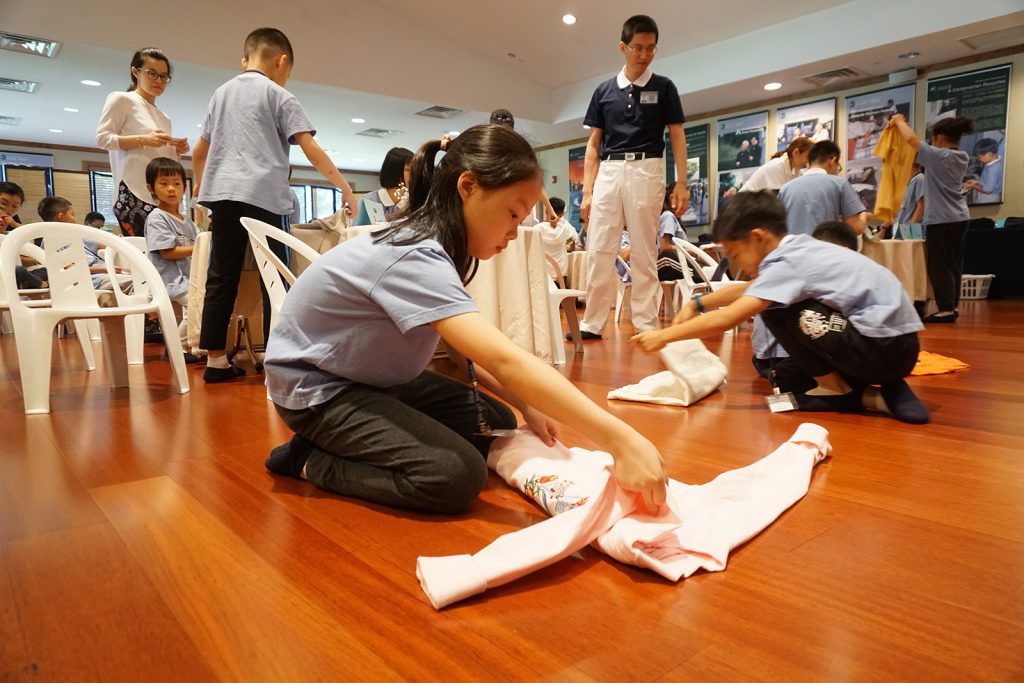
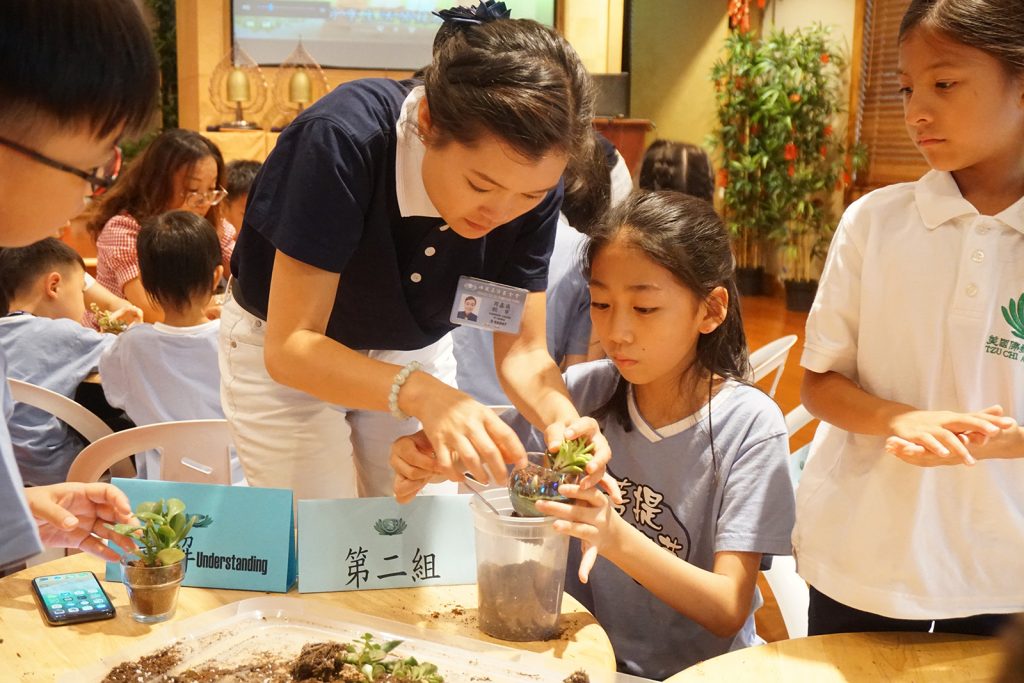
The reason for selecting this theme, according to Yan Xu, was because teachers hoped to spread the concept of “great love” amongst the children. Yan Xu said that teachers also wished to teach them more ways to be self-sufficient. Good etiquette, he expressed, is even more essential than having a wealth of knowledge in the long run.
New Understanding of Education
Modern education seldom encompasses a focus on cultural or etiquette-focused teachings as in traditional Chinese education. Through the summer camp, Bingyuan Huang reached a new understanding of education.
I saw many aspects of Chinese culture were utilized at Tzu Chi’s summer camp. Our children will learn good old etiquette once again. I am proud of it.
Bingyuan Huang, Summer Camp Lead Teacher
Bingyuan Huang expressed that she was honored to be part of the summer camp team. Starting with the very first class, she’d been learning something new each time. She was very impressed by the whole curriculum.
Wonderful Memories
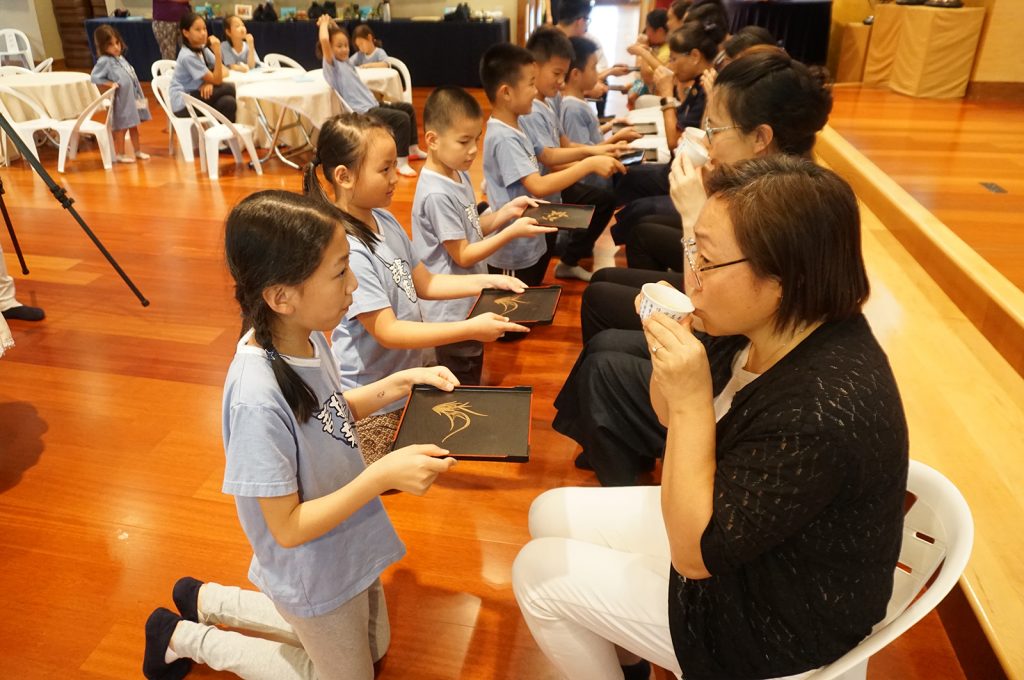
After the lectures, children were settled into their American host families, still humming the tune to the song, “Gratitude.”
Bingyuan Huang related a story about students from the first round of the summer camp: two children were sitting next to each other at the breakfast table, and one said, “Give without asking for anything in return.” The other replied, “Gratitude, respect, and love.” Another child said, “I can sing the “Gratitude” song for you!”
Ten days after the summer camp, that child still remembered every single line of the song. Bingyuan Huang believed that the summer camp left the children with wonderful memories, indeed.
The Sky Is the Limit
During one of the classes, students watched a video of those their age living in a disadvantaged area of Gansu. Upon witnessing the video, a greater sense of awareness was born within them — both for those children who are in need, and for their own situation.
For our self-exploration class on the second day, children played a group game where they learned the importance of discovering their own unique strengths — just like the Jing Si aphorism they’d learned: “Never underestimate yourself, for the sky is the only limit.”
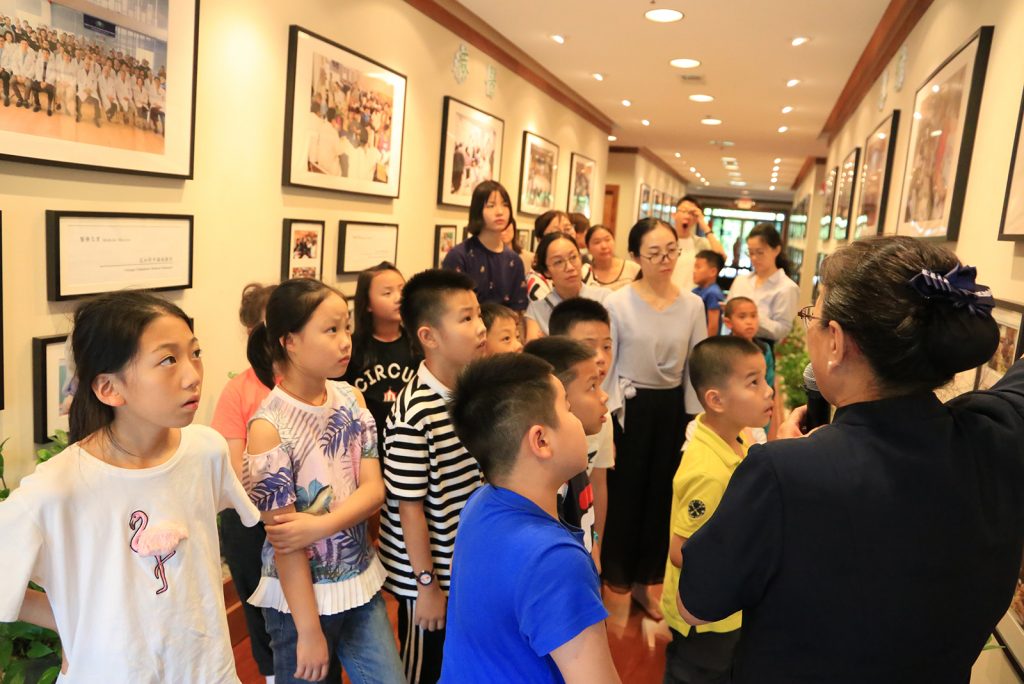
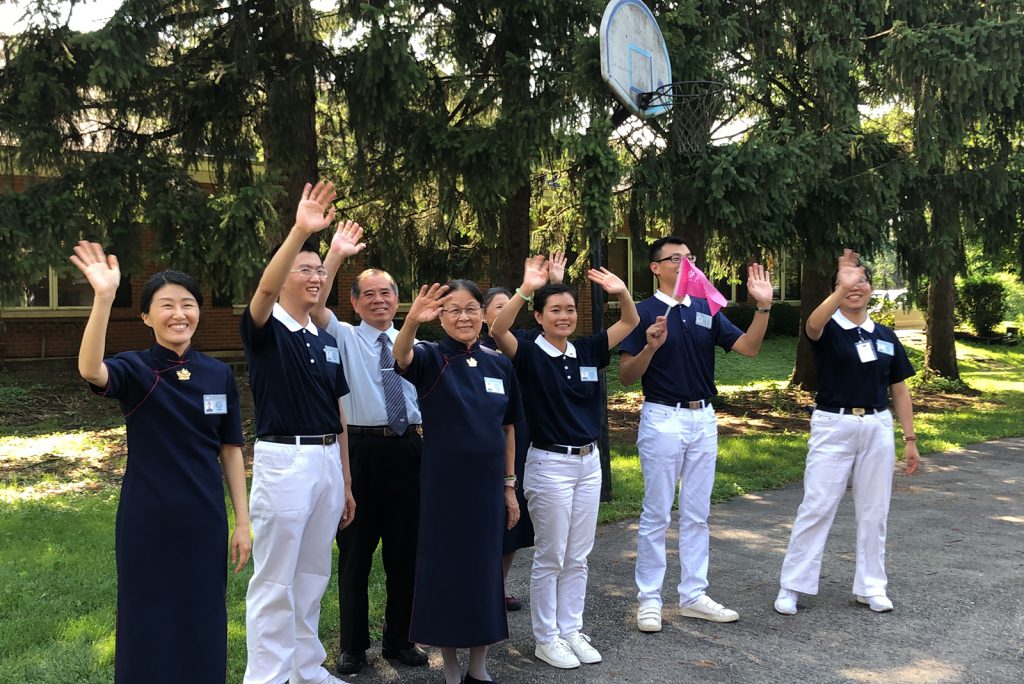
One of the students, Hao Han, was especially grateful to Tzu Chi volunteers for their cooking. He said that he gained a deeper understanding of gratitude through the lectures, and he now understands that we should be grateful to everyone and appreciate everything.
Another student, Yuhan Hu, shared that we shouldn’t squander resources, because something that we waste, such as water, might be scarce elsewhere.
At the self-exploration class, a teacher named Daixi Wang placed marbles and bookmarks in front of the children and asked them to move each one with either chopsticks or a spoon. Students found that chopsticks were better at picking up bookmarks while spoons were better for carrying the marbles. The goal of the activity is to help students understand that everyone has their own strengths and talents, like chopsticks and spoons being used for different tasks. Recognizing and appreciating this is an important part of learning.
Bringing It Back to Mainland China
After two rounds of summer camp, the parents also learned a great deal. Many picked up more beneficial ways to communicate with their children, and promised to bring this theme of “gratitude, respect, and love” back to mainland China to share with everyone.
One parent, Yinming Wang, said that the summer camp opened a window for him to learn about himself and about others. The etiquette class created valuable and lasting memories for both children and parents.
It’s like what Tzu Chi volunteers said, we should plant the seeds of love, spread them, and share it with others.
Yinming Wang, Parent
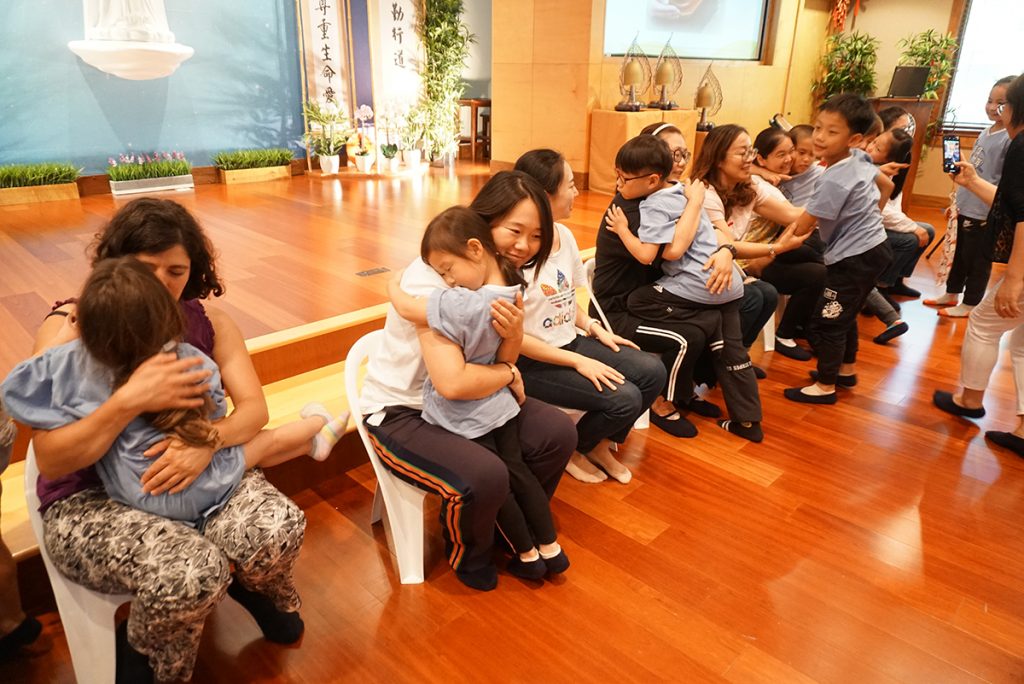
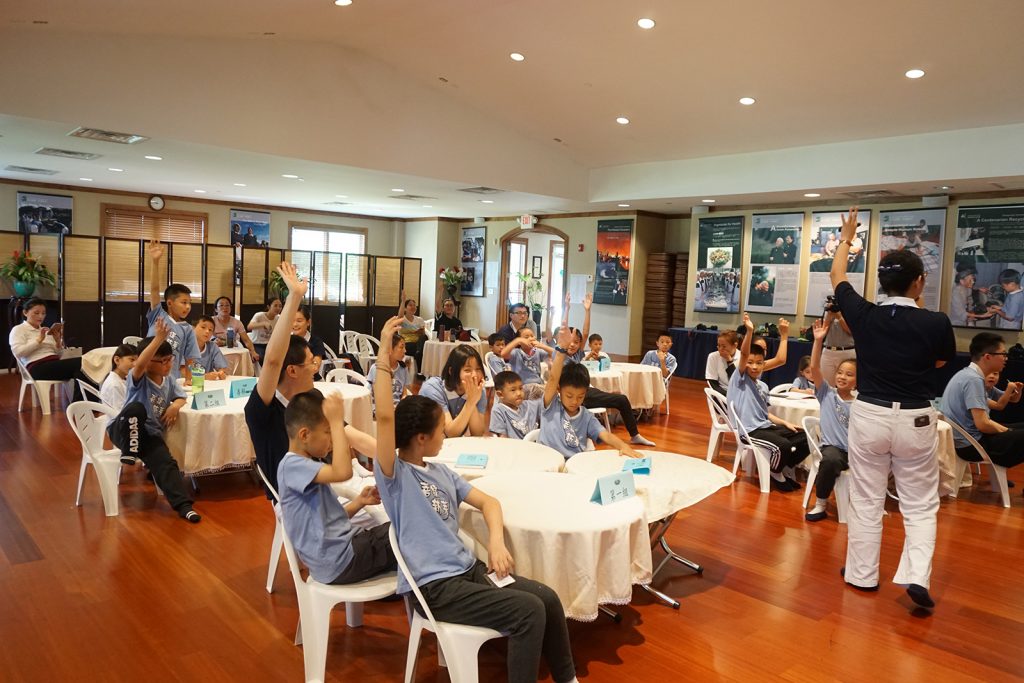
Yanyan Jiang, one of the parents, believed that living with an American host family was a good experience for the children. Before coming to the summer camp, she was a little worried about the idea. After the short etiquette class, however, she felt far more confident.
Yanyan Jiang mentioned that she also learned more effective ways to communicate with her child. She said that she would bring what she learned home and teach her child “gratitude, respect, and love” as well.
A Perfect Ending
At the end of the class, children performed the sign language song, “Gratitude,” and served tea to their parents, teachers, and volunteers. Holding their children in their arms and hearing how thankful they are, parents were deeply touched and moved by the special moment.
The class only lasted for a short time, but it left a wonderful impression on both parents and children. From that point onward, they’ll carry Tzu Chi’s humanities teachings with them always, and spread the concepts of “gratitude, respect, and love” to others.
